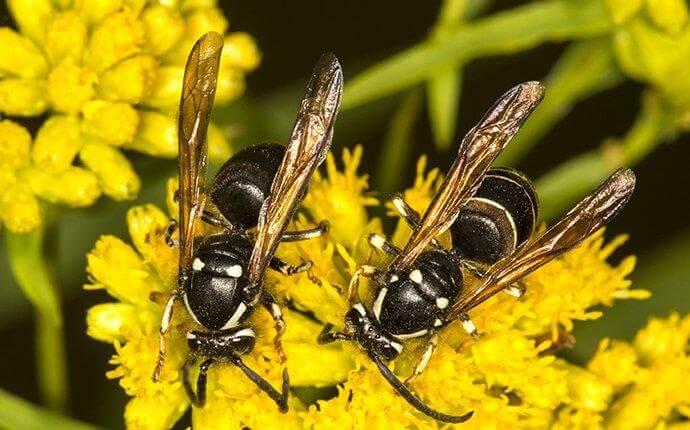In Texas, March is truly the beginning of spring. Flowers are beginning to bloom and it’s finally warm enough to spend some quality time outside. However, your outdoor enjoyment will be quickly cut short if your lawn is overtaken by stinging insects. Act now to keep your home protected from stinging insects this spring and summer.
Stinging Insects In Fort Worth
There are many species that fall into the category of stinging insects. Many of these are similar, and all of them can be painful and dangerous. For most people, a sting from one of these insects is just painful, but for people with allergies, a sting can be quite dangerous. Some species, like yellow jackets, can be aggressive and sting multiple times.
Some of the most common stinging insects in Fort Worth are:
- bald-faced hornets
- carpenter bees
- honeybees
- mud daubers
- paper wasps
- yellow jackets.
For reliable identification, give Romney Pest Control a call to inspect your property and identify the stinging insects that are giving you trouble.
When Is The Time For Stinging Insect Prevention?
Stinging insects are most active during the summer. You’ve probably noticed them swarming your picnic or hanging out beside the pool. However, when it comes to protecting your house, you need to act before they’re most active.
During the spring, stinging insects will emerge to mate and create new colonies. During these months, stinging insects will be looking for a new home. You need to make sure that they don’t choose to make their home too close to your home. Therefore, it’s time to take a look at your home and see if you are unknowingly attracting stinging insects to your property or creating ideal nesting places for them. Keep reading to find out how to prevent these pests.
How To Avoid Stinging Insects
There are two ways to protect your home from stinging insects. The first is to minimize their access to food and the second is to stop them from nesting.
1. Stinging insects are attracted primarily to sweet foods. Make sure to never leave food out, especially sugary food. Keep garbage secured in bins with airtight lids. If you have a garden, plant it as far from the home as possible.
2. Stinging insects need water to survive. Make sure you don’t have standing water for them to drink. Removing standing water will also protect your home from other pests such as mosquitoes, which breed in standing water.
3. Stinging insects need areas to build their nests. You can limit their nesting spots by keeping branches trimmed, especially around the house, keeping the grass short, and removing debris from the lawn. Protect your house by placing screens over doors and windows and using a chimney cap.
4. Stinging insects don’t stand a chance if you get help from the pros. The best protection plan is to work with Romney Pest Control for prevention and elimination. If stinging insects do build a nest near your home, let Romney take care of it. We have the tools and safety equipment necessary to remove nests without putting you or your family in danger.
Romney Pest Control can help you identify the species of stinging insects, determine what attracting factors may have drawn them to your yard, and create a long-term elimination and prevention plan. Stinging insects can be incredibly dangerous, so let us come by to protect you and your family.




